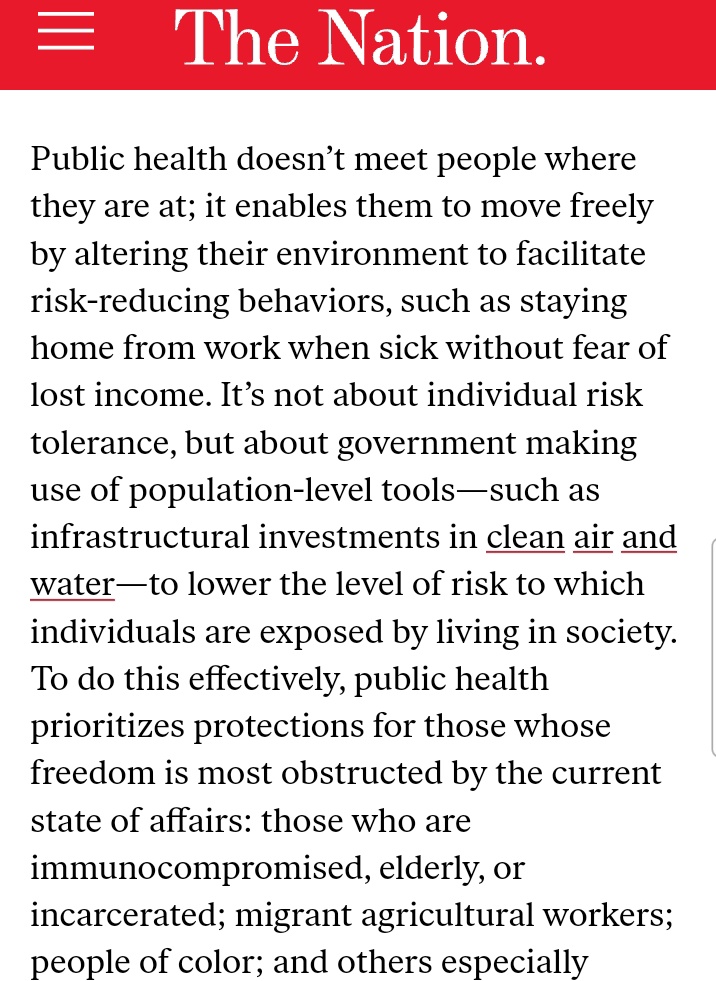Unfortunately, humans were always like this. What's kept us in check has always been (1) a perception that it's in our self-interest to support the group (which is why more folks didn't steal the shoes of sleeping ppl in concentration camps - though some did) & (2) institutional
https://twitter.com/broadwaybabyto/status/1762614491324236034
2/ constraints. (That's why we have an EPA, FDA/USDA, DoE, etc.)
In the current case, the PH institutional contraints started to slip b/c those in charge were more concerned w/ the voting power of the worst among us than w/ protecting the health of all of us. That led ppl to
In the current case, the PH institutional contraints started to slip b/c those in charge were more concerned w/ the voting power of the worst among us than w/ protecting the health of all of us. That led ppl to
4/ start questioning whether they *really* needed to follow rules that protect the group at a perceived cost to their own individual self-interest, after all. (Like the therapeutic myth or that of heaven & hell, the myth of a civil society only affects behavior for as long as ppl
5/ agree to believe in it.) And when society’s buy-in to our institutions (social constructs, all) starts to fray, then, to paraphrase Yeats, "things fall apart - the centre cannot hold."
So when the woman in the thread above said she sent her kid w/ RSV to daycare b/c the other
So when the woman in the thread above said she sent her kid w/ RSV to daycare b/c the other
6/ kids who might be harmed weren't *her* kid, she was voicing what a majority of people probably often think - but until now, haven't acted on, b/c the potential costs to them were (until now) so high.
But now we've become a no-holds-barred society where the sociopaths
But now we've become a no-holds-barred society where the sociopaths
7/ make the rules & the primary concern of our governmental institutions (which were designed to protect our welfare) is just trying to get out of the line of fire.
This is a downward spiral. Things will most def. fall apart, & we'll see what unregulated human nature really is.
This is a downward spiral. Things will most def. fall apart, & we'll see what unregulated human nature really is.
• • •
Missing some Tweet in this thread? You can try to
force a refresh







